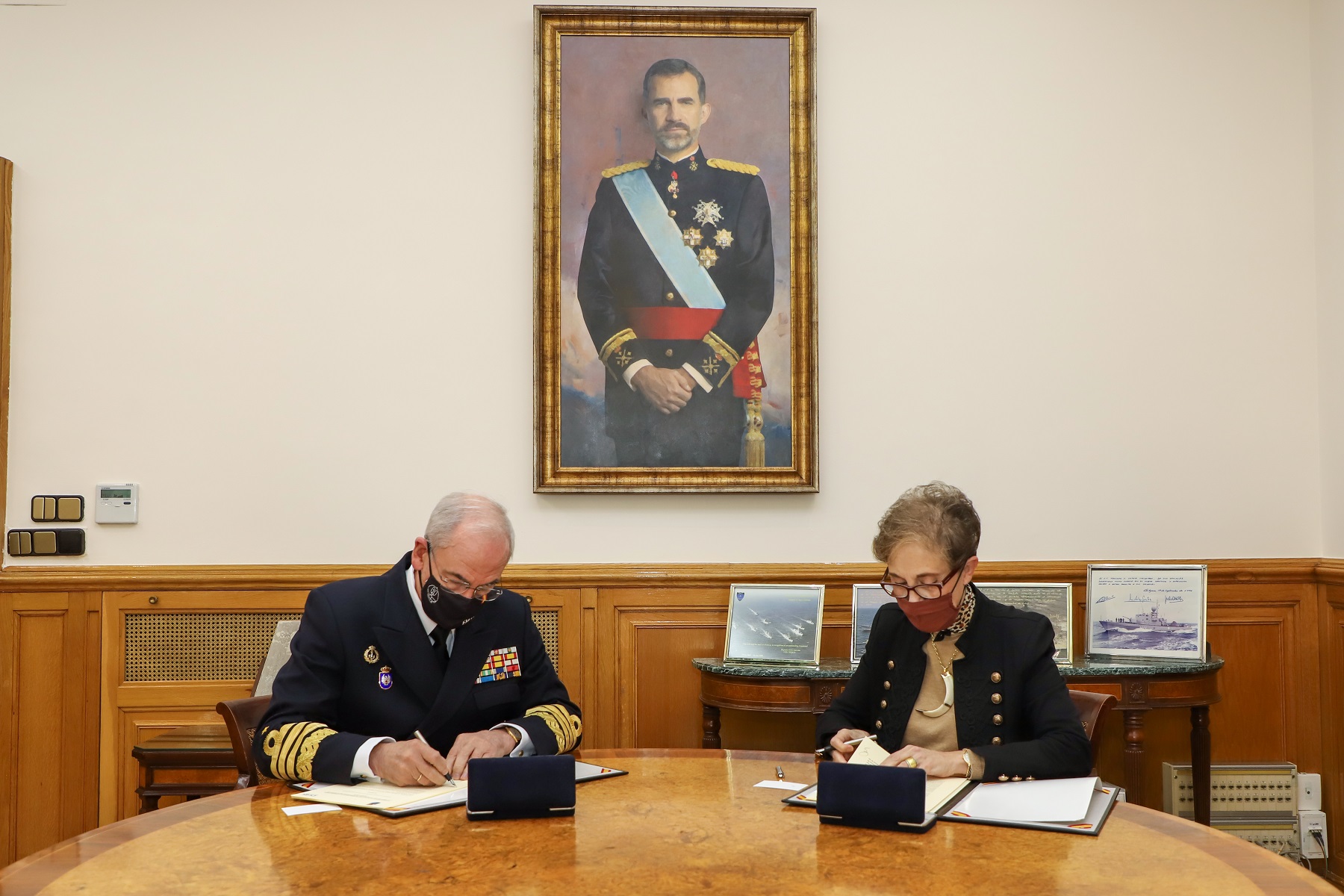
The National Cryptologic Centre and the Joint Cyberspace Command sign a strategic alliance to manage and respond to complex cyberattacks
- The agreement is also aimed at boosting the capabilities of the Cybersecurity Operations Centre of the Ministry of Defence
The Secretary of State and Director of the National Intelligence Centre and the National Cryptologic Centre, Paz Esteban, and the Chief of Defence Staff (JEMAD), Admiral General Teodoro Esteban López, have signed this morning a specific collaboration agreement establishing a strategic alliance between the National Cryptologic Centre (CCN in Spanish) and the Joint Cyberspace Command (MCCE in Spanish) regarding the management and response to complex cyber-attacks affecting the public sector.
Under this agreement, the two organizations will join forces to strengthen management and response capabilities to critical or very high threat incidents that involve the theft of sensitive information or may seriously affect the availability of an organization's services. This will reduce resolution times for these kinds of incidents and improve common knowledge regarding cyber threats.
This agreement also establishes the framework for collaboration between the two organizations to strengthen the Cybersecurity Operations Centre of the Ministry of Defence, which is operated by the Joint Cyberspace Command. With the support of the CCN, the current surveillance and threat detection capabilities of this centre will be significantly increased in regard with the daily operations carried out by classified information and communications systems that handle international information, thus improving its capacity to respond to any attack.
Likewise, in order to speed up the accreditation procedures of systems handling classified information, this agreement strengthens the cooperation between the MCCE and the CNI-CCN in the performance of STIC inspections and technical or compliance audits on information systems.
In addition to the aforementioned activities, the agreement covers other areas of collaboration, such as the exchange of technical information on security matters, the promotion of specific security tools or collaboration in training programs and activities related to the promotion of security culture
Fotos


